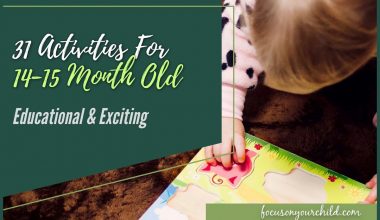Once upon a time, you had a favourite ice cream flavour, a preferred coffee order, and a hobby that didn’t involve scraping jam off the backseat.
Then, somewhere between the toddler tantrums and the Year 5 science project, your sense of self got tossed in the laundry with the odd socks.
Parenthood can turn even the biggest personalities into background extras in their own lives. The good news? Rediscovering your “you-ness” isn’t about exotic holidays or manifesting your inner zen goddess.
It’s about small, stubborn acts of self-priority—stuff you can start tonight, even if you’re reading this with one eye open and a baby monitor in hand.
Here’s how to begin dusting off that fabulous, interesting, occasionally slightly unhinged person you once were (and still are).
1. Prioritize Pockets of Time for Yourself
Yes, yes, every parenting article says this. But before you roll your eyes and mutter something unprintable, hear me out.
The myth that self-care requires hours, scented candles, and a personal masseuse is just that—a myth. Experts from American Academy of Pediatrics that what matters is consistency, not extravagance.
Five minutes locked in the bathroom, pretending to meditate (actually scrolling memes) counts. So does a hot cup of tea enjoyed before the house wakes up.
These micro-moments chip away at the resentment and exhaustion that build when we feel invisible.
Can’t find five minutes? Try habit stacking.
Link a mini-you-moment with something you already do—like listening to your guilty-pleasure podcast while folding laundry, or stretching before bed.
The trick is to treat these minutes as sacred. Stop apologizing for them. Announce to your household, “Mum’s in the bath, please keep the house standing.”
You’ll be surprised how quickly they adapt (or at least, how quickly they learn to pick the lock).
Tired of the “me time” cliché? Rebrand it. Call it “parental preservation time.”
It’s not selfish; it’s essential maintenance. You wouldn’t run a car on empty. Why run yourself that way?
2. Rekindle Old Passions or Discover New Ones
Remember that thing you used to love before the nappy-changing Olympics began? Knitting, painting, baking, running, playing guitar, dance classes, fixing up old bikes, reading (books without pictures)—the list goes on.
If your old interests no longer fit, give yourself permission to try something completely new. According to UC Davis Health, parents who carve out time for hobbies experience lower stress and higher satisfaction in family life.
Start small. You don’t need to launch an Etsy shop or run a marathon. Ten minutes with a sketchbook, a quick YouTube tutorial, dabbling in a free language app like Duolingo—all count.
Not sure what sparks joy anymore? Think back to what made you lose track of time as a child. Lego-building still counts. So does reading trashy novels.
If you feel guilty spending time on yourself, involve your kids.
Bake together, or let them “help” with your gardening. If they’re older, use this as a chance to model healthy interests outside of parenting—one of the best gifts you can give them.
Just imagine: “Mum/Dad isn’t just an Uber driver and snack dispenser. They actually have a life!” Scandalous, I know.
Can’t make time during the day? Try a digital book or podcast during the school run.
Or join an online community of fellow hobbyists—Facebook groups, Reddit threads, local WhatsApp chats abound for every interest, from home brewing to calligraphy.
You might even make a new mate who doesn’t care what’s currently stuck to your jumper.
3. Strengthen (or Find) Your Village
They say it takes a village to raise a child, but sometimes the village seems to have moved and left a note on the fridge (“Good luck!”).
Reclaiming yourself requires support, even if the grandparents are three time zones away or your best mate just got swallowed by their own newborn vortex.
Studies show that parents who maintain strong social connections report higher wellbeing and a stronger sense of self. Your old friends might be busy, but a WhatsApp group for “Mums who love true crime podcasts” could be a lifeline.
Local libraries, playgroups, or running clubs are also excellent places to meet other adults with names (not just “Tommy’s mum”).
Feel awkward making new friends as an adult? You’re not alone.
Try “mum dates” (or “dad dates”) with parents you meet at school pick-up. Start with a walk, a coffee, or a shared whinge about packed lunches.
If you’re working, see if your workplace has a parent support network or informal Slack channel. Even a five-minute meme exchange with a colleague counts.
If in-person meetups are tough, online groups and forums can provide support and validation. Parenting isn’t meant to be a solo sport—vent, share, laugh, and remind yourself you’re not just someone’s snack provider.
When childcare is a problem, don’t be afraid to ask for help. Schedules are tight, but a swap with a trusted parent (“You take mine Thursday, I’ll take yours Saturday”) buys precious time.
Sometimes, all it takes is one adult conversation in a week to remember what your own voice sounds like.
Still in There
Life after kids can feel a bit like waking from a nap you never meant to have: groggy, disoriented, and possibly covered in stickers.
But you’re not lost. You’re evolving.
Reclaiming your identity isn’t a selfish pursuit—it’s how you stay sane, resilient, and a better parent.
Small acts matter. Five minutes here, ten there, a WhatsApp chat at midnight.
Give yourself permission to care about what makes you, well, you. Your kids deserve to know the real version, not just the one who can recite “We’re Going On A Bear Hunt” backward.
Go on—find that old playlist, message a friend, or lock the bathroom door.
Your identity is still in there, waiting for you—possibly with a cup of tea and a biscuit.




